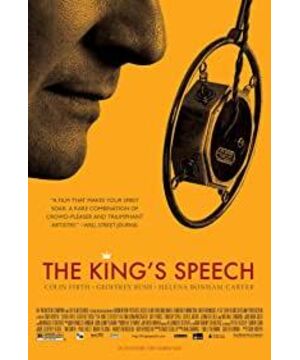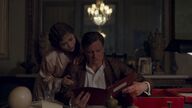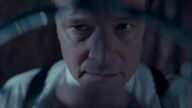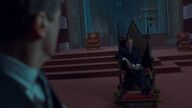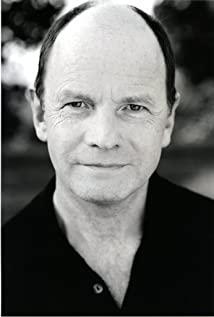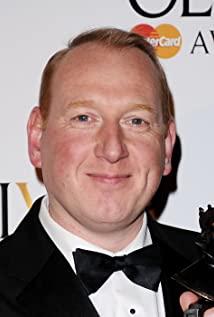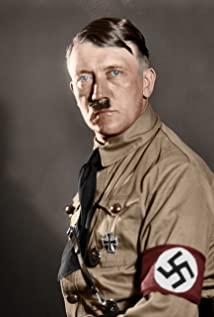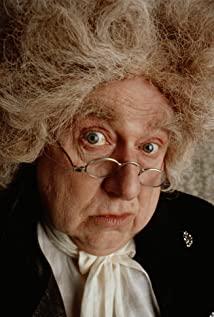Nominations for the 83rd Oscar Film Awards have just been announced. "The King's Speech" leads with 14 nominations, overwhelming the high-profile films such as "Social Network" and "Inception". British director Tom Hooper was nominated for the best director award for this film, and Colin Firth, who was already known for his superb acting skills, also used this film as the "stuttering king" George VI. Role, become the most powerful contender for the best actor Oscar. The last time a British royal-themed movie shined at the Oscars was "Queen", and "The King's Speech" tells the story of the father of Queen Elizabeth II, the protagonist of "Queen", George VI.
This is naturally good news for British films. If it can finally win an overwhelming victory, it can undoubtedly boost the morale of the clouded British film industry. This is especially true in the context of the "British Film Commission" that supports British film production and will be disbanded by the government in the middle of this year. The glory of "The King's Speech" will undoubtedly be a tragic farewell song of this committee-this film was filmed with funding from this organization that heavily supports commercial film production. These outstanding talents will soon lose the most stable government support, and once they enter the Hollywood market, they don't know what kind of compromises will be made. Thinking of this, it is hard not to feel sad.
The Voice of the King
Hong Kong translated the title of this movie as "The King Has No Words", which is indeed eye-catching at first glance, and it leads people's thinking three ways at once. But in fact, this movie is really a rare emotional work in recent years, and the Hong Kong version of the name is really misleading. But this is understandable. Indeed, the core of this movie is speech, how a king finds his own voice; it is also a story of how a person overcomes his fears and stands up to bear his responsibilities in troubled times.
The protagonist of the movie is the younger brother of King Edward VIII who "loves beauty but not country": George VI. The romantic story of Edward VIII and Mrs. Simpson often gives artists a lot of inspiration, but George VI, who died young, rarely appears on the screen. Even people who know that he is the father of Queen Elizabeth II, who is now in power, are probably not many. If he does not become King George VI, but has always been the Duke of York, he can live a peaceful life with his wife and daughter without having to bear so many responsibilities and pressures. But he happened to be romantic by nature-according to his standard of judgment, he was the brother of Edward VIII who had no sense of responsibility, so he could only reluctantly take over the responsibility of the king. That was the time of turmoil, shortly after his coronation, Britain declared war on Nazi Germany. The whole movie is filled with gray fog, and the faces of people wearing top hats are solemn.
Although George VI is a good man with a strong sense of responsibility, he has been stuttering since he was a child. As a member of the royal family, he needed to speak to the public frequently, which became his nightmare. After several failed corrections, his wife Elizabeth (played by Helena Boham-Carter) found a therapist: Leon Roger (played by Jeffrey Rush) from Australia. They gradually became friends, and Roger could call him Bertie like a royal family. With the help of Roger, Bertie finally overcame all his childhood fears, found his own voice, and published the famous "Christmas Speech"-greeting the British Empire at Christmas is the traditional duty of the British King. , And that speech was recorded in the annals of history because of World War II. The story of a
masterful work
is actually very simple to say, it seems to be a simple inspirational subject. But the two super acting schools, Colin Fils and Jeffrey Rush, performed extremely powerful effects. Colin Firth's grasp of the monarch who led the British people to stick to during the Second World War is even more inferior. The various production links of the film all reflect excellence and are completely textbook works. The 12 Oscar nominations not only proposed directors, screenwriters and actors, but also included affirmation of technical aspects such as photography.
Screenwriter David Seidler has a long history of stuttering himself. His grandparents died in the Holocaust in World War II when he was still young and had fled to the United States with his family. In his opinion, this emotional shock caused him to stutter later. Because of fear of other people's strange eyes, he often remained silent. He also had the same struggle as King George VI. In the end, he no longer feared to speak, "I think what I said is worth listening to." This kind of empathy across time and space makes his script full of flesh and soul. The movie is also full of Shakespeare's shadow, but it is only clicked to the end, leaving an endless aftertaste-this is indeed a feeling that only the British can express. A scene where the Bertie family watched Hitler’s speech also has a very subtle meaning: some people may be fluent in speech and good at incitement, but they may be demons; those who are shy and stupid or even clumsy may have a good heart. brave Heart.
Just watching the movie itself, without a background understanding of history, I’m afraid I’m unable to appreciate this seemingly inspirational movie, but there is actually a great pain behind it. And Bertie, who has the warm friendship of a happy family and friends, is actually a very sad figure. After his inspiring Christmas speech, it was the trauma of war suffered by British soldiers and civilians. In the ending subtitles, the director dedicated the film to one of his family elders, a former British officer who died on the battlefield during World War II. King George VI also had the last glory of the British Empire. During his tenure, the colonies of the British Empire fell apart one after another, from the British Empire to the Commonwealth. In order to boost morale during World War II, he always stood by London, his health was greatly damaged, and he passed away in 1952. The Latin epitaph that Churchill wrote for him is "The brave is invincible." What he actually experienced was a moment when the empire was disintegrating. During World War II, Britain made great sacrifices, but after World War II, the status of world hegemon was occupied by the United States.
The true appearance of George VI in history is closer to Guy Pearce, who plays Edward VIII in the film, but Edward VIII looks closer to Colin Fels. But Colin Firth's performance is really wonderful, from the cowardly and very irritable second prince to the confident and humorous king, the whole process is very rewarding. And Jeffrey Rush, who is willing to play a supporting role, also accurately pinpointed the image of a "fake" therapist who is friends with the royal family. He is an Australian himself, and it is quite appropriate to play an Australian who was often discriminated against in the 1930s. The supporting roles in the movie are also the first-line characters of British actors, from Helena Boham Carter to Timothy Spall who played Churchill, and Jennifer Earl who played Mrs. Rogge. (Jennifer Ehle)-"Pride and Prejudice" co-starred by her and Colin Fels is still a classic. If there are any shortcomings, it is only possible to see the "Death Eaters" and "Wormtail" in the "Harry Potter" appear in the court, one is the queen, the other is Churchill, it will be a little confused Feel.
The director and screenwriter borrowed from the Rogge family the notes he had taken during the treatment. "Many of the wonderful lines are directly derived from the original words in the notes." The director Hooper once disclosed this in an interview. Hooper's past grasp of history and non-fictional themes is fully displayed in this film, and he also tries his best to be faithful to history. However, some critics still pointed out that the film itself has some parts that are not consistent with history: for example, Churchill actually worked hard to support Edward VIII, instead of wanting him to abdicate from the beginning, as in the movie. And some historical data also revealed that George VI's family is far from being as happy as described in the movie. Considering that this is a royal movie, I'm afraid it wouldn't be released otherwise. Regarding the monarchy that has been in danger over the years, it is unknown whether this movie can regain people’s enthusiasm for the royal family. However, leaving all this aside, as far as the film is concerned, the audience can really feel what the art of making a film is.
View more about The King's Speech reviews


